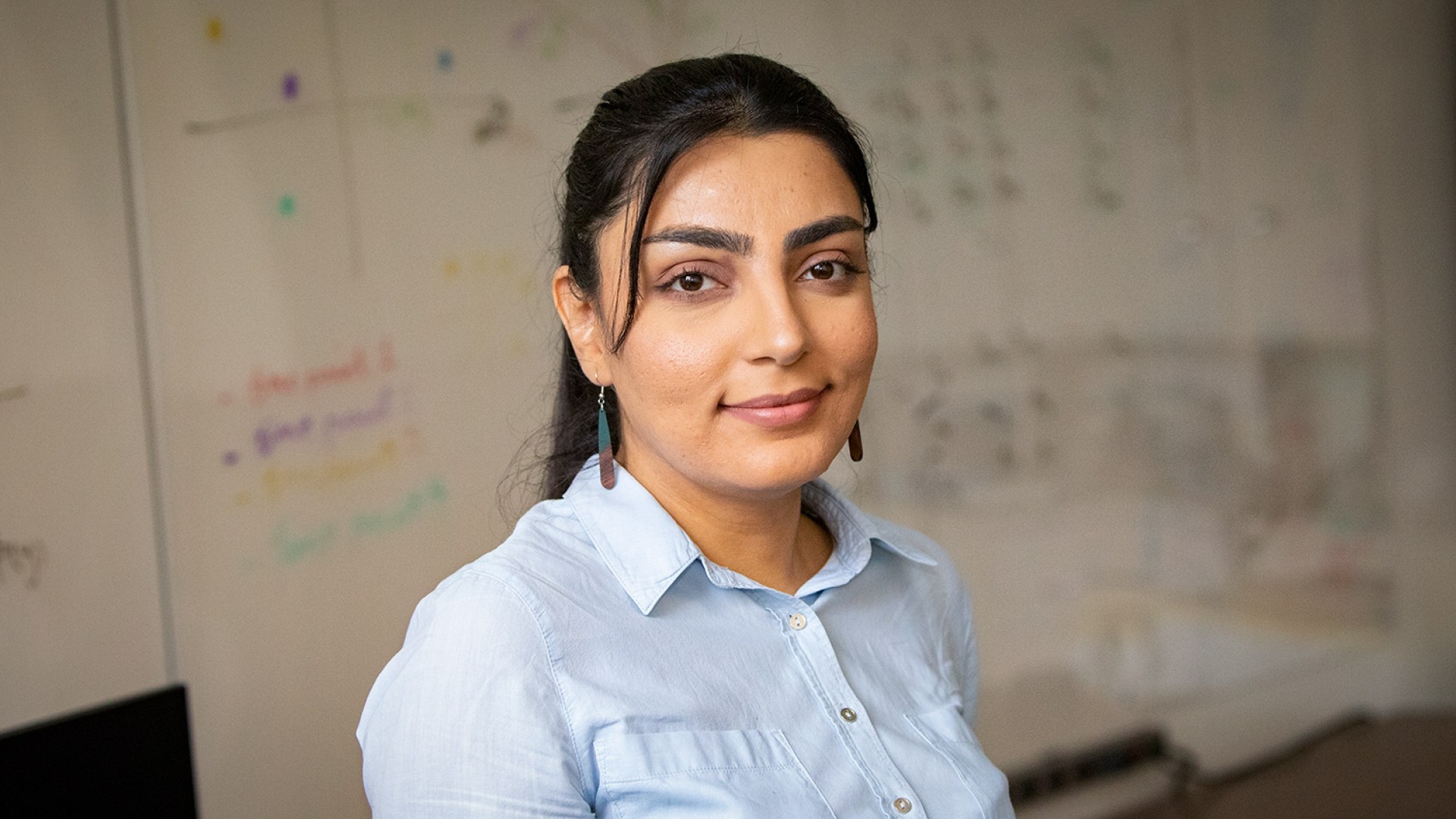
Research work to better understand the brain, work that could potentially help people with degenerative brain disease, was in the spotlight recently as StFX computer science master’s student Athar Omidi defended her thesis on aligning human brain images in a "functional" space instead of a physical space.
The value of this work is to not only better understand the brain, but to better help people with degenerative brain disease as their brains may differ in shape quite a bit, says her supervisor, computer science professor Dr. James Hughes.
Researchers will be able to use this method to gain a better understanding of how the brain works and allow for a more accurate analysis of human brain activation across different individuals. Additionally, it will highly improve the quality of studies involving populations with different brain structures, such as older populations and individuals with degenerative brain disease, such as Alzheimer’s disease.
Ms. Omidi, a member of the Convergence Lab at StFX, says human brains are all shaped differently and react to exactly the same stimulus, such as sound, touch, and picture, in different ways.
This is due to the fact that stimulus results in different neuronal connections being activated within the brain in different individuals.
“Typically, researchers align different individuals’ brains by transforming them into the same three-dimensional physical space, and once aligned, they start to analyze how the brain reacts to certain situations and try to make generalizations about the brain. However, this strategy is limited in that it can only address the differences in the physical shape of the brain and not the different functional activations,” she says.
The work done by Ms. Omidi provides a framework for aligning brain function in a high-dimensional space rather than in three physical dimensions using a form of sophisticated mathematics within the field of Optimal Transportation.
Machine learning was used to analyze the transformed brains to ensure the accuracy of the novel alignments.
The project started as a master thesis at StFX in September 2020 under the supervision of Dr. Hughes and mathematics professor Dr. Ryan Lukeman with guidance from psychology professor Dr. Erin Mazerolle.
Ms. Omidi successfully defended her master’s thesis on October 7th, 2022 in front of an examination committee that included the external examiner Dr. Mark Daley, the Vice President, Research at the Canadian Institute of Advanced Research and professor at the University of Western Ontario.

